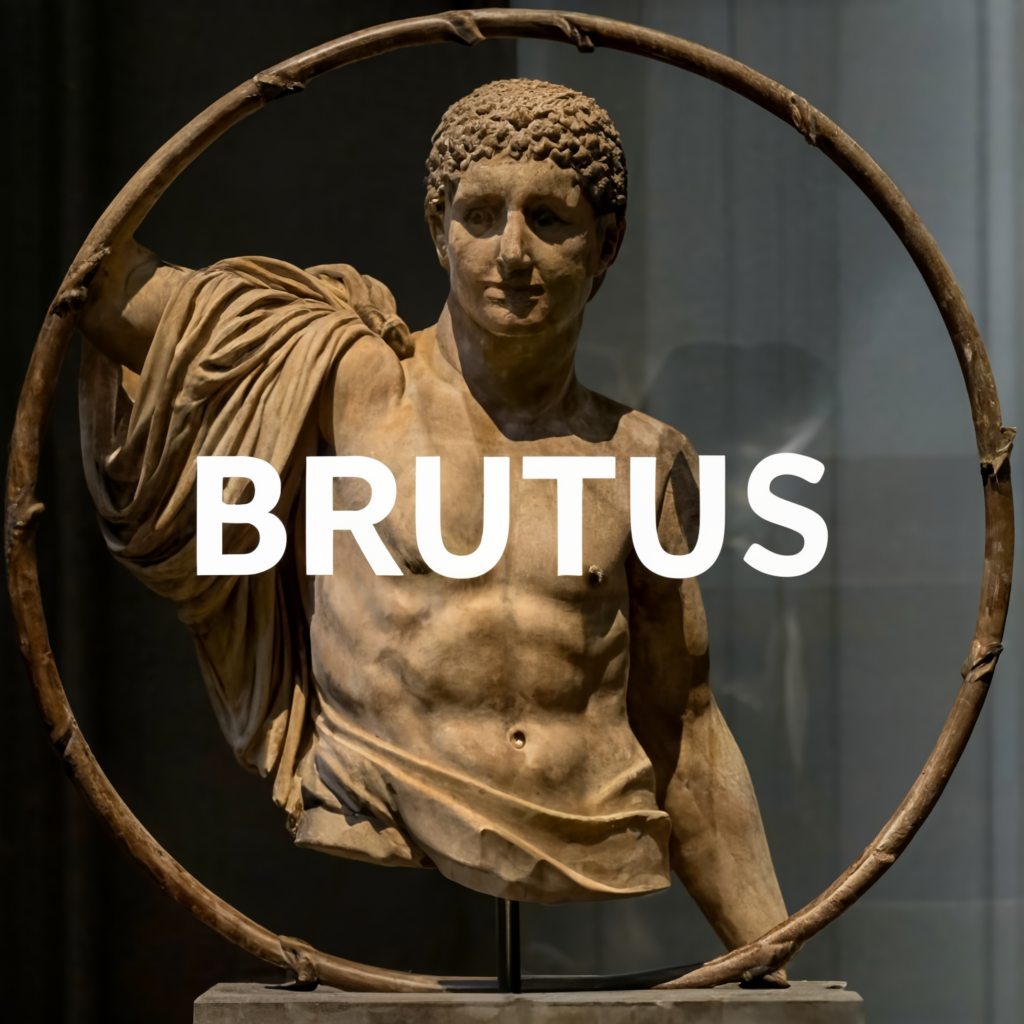Brútus, often written as Brutus, is a name that carries significant weight in historical and cultural contexts. Its origins trace back to ancient Rome, and its influence extends into various spheres, including literature, history, and popular culture. This comprehensive guide will explore the many facets of Brútus, examining its historical significance, cultural impact, and modern interpretations.
Historical Background of Brútus
The name Brútus, Latin for “Brutus,” is most famously associated with Marcus Junius Brutus, a Roman senator known for his role in the assassination of Julius Caesar. Brutus was born in 85 BCE and was a member of the prominent Junia family. His actions and subsequent legacy have been the subject of extensive analysis and debate among historians and scholars.
Marcus Junius Brútus: The Assassination of Julius Caesar
Marcus Junius Brútus is perhaps best known for his involvement in the assassination of Julius Caesar in 44 BCE. Brútus, along with other conspirators, believed that Caesar’s death was necessary to restore the Roman Republic and prevent the rise of a tyrant. The assassination took place on the Ides of March and is one of the most pivotal events in Roman history.
Brútus’s decision to join the conspiracy was influenced by his belief in republican values and his concern about Caesar’s concentration of power. However, the aftermath of the assassination did not lead to the restoration of the Republic but rather to a series of civil wars that ultimately ended with the rise of Augustus and the establishment of the Roman Empire.
Legacy of Brútus
Brútus’s legacy is complex and multifaceted. On one hand, he is seen as a symbol of resistance against tyranny and a champion of republican ideals. On the other hand, his actions led to unintended consequences and are often viewed critically in historical retrospectives. Brútus’s life and actions have been the subject of numerous works of literature, including William Shakespeare’s play “Julius Caesar,” where he is portrayed as a tragic hero.
Cultural Impact of Brútus
The impact of Brútus extends beyond historical texts and has influenced various aspects of culture, including literature, art, and modern media.
Brútus in Literature
Brútus has been a prominent figure in literature, especially in works exploring themes of power, betrayal, and morality. Shakespeare’s “Julius Caesar” is perhaps the most famous literary work featuring Brútus. In the play, Brútus is portrayed as an idealistic character who is conflicted about the morality of his actions. Shakespeare’s portrayal has significantly shaped how Brútus is perceived in popular culture.
Other literary works have also explored Brútus’s character, examining his motivations and the consequences of his actions. These interpretations often reflect the broader themes of power and ethics that are central to the Brútus narrative.
Brútus in Art and Media
In art and media, Brútus has been depicted in various forms, from classical sculptures and paintings to modern films and television series. These representations often emphasize different aspects of his character, from his role as a liberator to his tragic flaws.
The visual portrayal of Brútus has evolved over time, reflecting changing attitudes towards his actions and legacy. In classical art, he is often depicted as a noble and stoic figure, while modern interpretations may focus on the complexities and contradictions of his character.
Modern Interpretations and Analysis
In contemporary discussions, Brútus is often analyzed in the context of political philosophy and ethical dilemmas. His actions and motivations are examined through various lenses, including the nature of power, the role of individual conscience, and the impact of political decisions on society.
Political Philosophy
Brútus’s involvement in the assassination of Caesar raises questions about the justification of political violence and the ethics of rebellion. His belief in the restoration of the Republic and his actions in the name of liberty are central to debates about the legitimacy of using violence for political ends.
Ethical Dilemmas
The ethical implications of Brútus’s actions are explored in terms of personal responsibility and the consequences of political decisions. Brútus’s internal conflict and the aftermath of the assassination highlight the complexities of moral decision-making in the face of political and personal pressures.
Brútus in Popular Culture
In addition to historical and literary representations, Brútus has found his way into popular culture. His story is frequently referenced in discussions about political ethics and is used as a metaphor for betrayal and the struggle for power.
References in Modern Media
Brútus’s legacy is reflected in various forms of modern media, including films, television shows, and online content. These references often draw on the themes of betrayal and political conflict that are central to his story.
Brútus as a Symbol
Brútus has become a symbol of resistance and moral struggle. His actions are often used to illustrate the tension between personal ideals and political realities, making him a relevant figure in discussions about ethics and leadership.
FAQs
1. What was the Ides of March?
The Ides of March refers to March 15th, the date of Julius Caesar’s assassination.
2. Why did Brútus participate in Caesar’s assassination?
Brútus participated in the assassination because he believed it was necessary to restore the Roman Republic and prevent tyranny.
3. How is Brútus portrayed in Shakespeare’s play?
In Shakespeare’s play “Julius Caesar,” Brútus is portrayed as a tragic hero conflicted about his actions and motivated by his republican ideals.
4. What were the consequences of Caesar’s assassination?
The assassination led to a series of civil wars and the eventual rise of Augustus, marking the end of the Roman Republic and the beginning of the Roman Empire.
Conclusion
This comprehensive exploration of Brútus aims to provide a detailed understanding of his historical significance, cultural impact, and modern interpretations. By delving into various aspects of Brútus’s life and legacy, this guide offers a nuanced perspective on one of history’s most intriguing figures.





